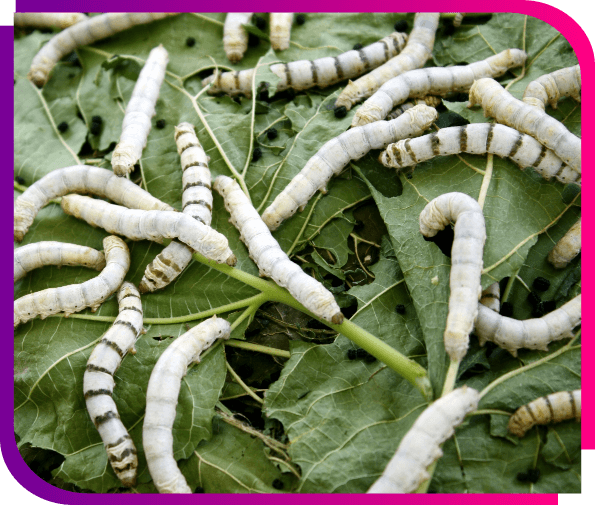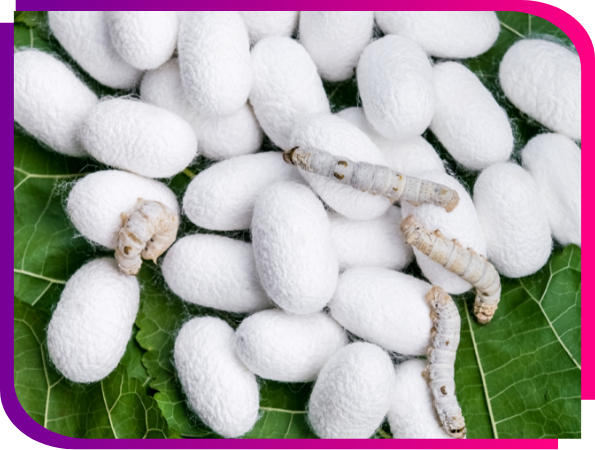
Sericulture is an age-old practice of rearing silkworms to make Silk by feeding them mulberry leaves and helping them form cocoons. These cocoons are reeled into silk threads which are later used by weavers to make silk garments. This process of cultivating mulberry plants and rearing the silkworms in a rearing house to form cocoons is called 'Sericulture'.
There is considerable demand for silk in India given that we import close to 50% of silk required for domestic consumption. We are also exporters of silk goods. Sericulture as a livelihood activity is highly profitable if adopted and practised properly. Farmers who have properly adopted this activity tend to make over Rs. 2 lakh per acre annually.
We are currently working with clusters of marginal farmers in Madhya Pradesh, Odisha, and Maharashtra helping them adopt mulberry sericulture in their farms by providing them with end-to-end support including loan financing, complete resource inputs, training and guidance, and forward linkage tie ups to ensure they adopt the activity properly.
In collaboration with our ground partners in Beed and Gondia District in Maharashtra, Betul and Barwani District in Madhya Pradesh, and Kandhamal District in Odisha, we identified 100s of credible farmers who are provided with complete support right from formal credit, input resources, forward linkage arrangements, training and technical guidance.
We have partnered with State Bank of India to extend financial support to these identified farmers and we have roped in multiple buyers to purchase the cocoons produced by these farmers including an FPO which guarantees a fixed purchase price.
By providing technical inputs, expertise, and guidance as per the standards set by the apex government body - Central Silk Board, we are ensuring that all farmers adopt the project properly and are given timely advice and training at every stage of the project. Additionally, we also engage market experts to ensure best practices are adopted and output is maximised.
Farmers in Maharashtra who adopted this activity in the past have witnessed about 10X growth in their annual incomes in comparison to their previous earnings from MSP crops thereby resulting in socio-economic upliftment. Farmers who were earlier cultivating sugarcane, cotton and soybean adopted sericulture in their farms.
Today these farmers are able to produce 7 ~ 8 batches of cocoons in a year from just 1 acre of mulberry plantation. They produce 70~80 kgs of cocoons each batch, which gives them an average of 500 kgs of cocoons over the course of one year. These cocoons are sold for an average price of Rs 500 per kg in the open market via auction leading to Rs. 2.5 lakhs in earnings.
